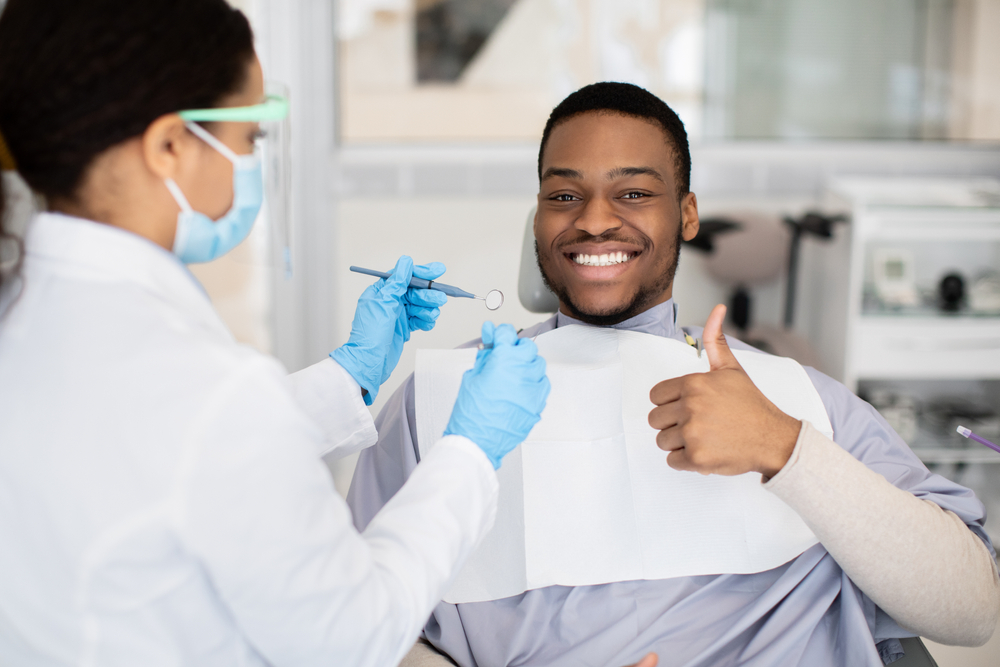Your Dentist’s Role in Detecting Mouth Cancer: The Importance of Regular Check-ups

Oral cancer is a prevalent yet often overlooked ailment, appearing in any part of the mouth, including the lips, tongue, cheeks, or throat. Early detection is pivotal as it drastically improves the odds of successful treatment, making regular dental check-ups a crucial part of preventive health care. Toronto dentistry, with its advanced practices, plays a significant role in this early detection process.
Early Signs and Symptoms of Mouth Cancer
The initial signs of oral cancer may include persistent sores, lumps, red or white patches in the mouth, and difficulty or pain while swallowing. However, these signs can be easily overlooked or mistaken for minor issues like a toothache or cold sore. Hence, being vigilant about any abnormal changes and having regular dental exams can significantly aid in early detection.
Helpful Tip: Maintain a health journal to note any unusual symptoms or discomfort in the oral region, which can be shared with your dentist during visits.
The Dentist’s Role
Dentists are adeptly trained to recognize the early signs of oral cancer. During routine check-ups, they conduct detailed examinations, including visual inspections of your oral cavity and palpations of the jaw and neck to identify any abnormalities. Special tests may be conducted to investigate any suspicious areas further. The meticulous approach of dentists can lead to early diagnosis and timely intervention.
Helpful Tip: Ensure to choose a dentist with comprehensive expertise in oral cancer detection for a thorough examination.
Regular Dental Check-ups
Regular dental check-ups are imperative for catching oral cancer at an early, more treatable stage. Although the general guideline is to have dental check-ups every six months, those with higher risk factors may need more frequent exams. Toronto dentistry professionals are well-versed in providing personalized check-up schedules based on individual risk profiles.
Helpful Tip: Stay consistent with your dental check-ups, and ensure to follow through with any recommended tests or referrals.
Risk Factors and Prevention
Common risk factors for oral cancer include the use of tobacco, heavy alcohol consumption, and exposure to HPV. You can minimize these risks through lifestyle changes like quitting smoking and moderating alcohol intake. Regular dental exams, including cleanings and fillings, also contribute to a healthier oral environment, potentially reducing cancer risk.
Helpful Tip: Incorporate a balanced diet rich in fruits and vegetables to support overall oral health.
Additional Benefits of Regular Check-ups
Besides oral cancer screening, regular dental check-ups contribute to maintaining good oral hygiene, preventing gum disease, and addressing other dental issues timely. Procedures like cleanings and fillings are essential to prevent decay and promote overall oral health.
Helpful Tip: Adopt a robust at-home oral care routine comprising of brushing, flossing, and using an antiseptic mouthwash to complement your regular dental check-ups.
Closing Thoughts
Regular dental check-ups are a prudent step towards not only detecting oral cancer early but also ensuring a healthy, vibrant smile. It’s advisable to schedule these check-ups and openly communicate any oral health concerns with your dentist. Remember, early detection is key to effectively treating oral cancer, and your dentist is a significant ally in maintaining your overall oral health.
Helpful Tip: Foster a good relationship with your dentist, making it easier to discuss any concerns and follow through with recommended preventive measures.
Engaging in a proactive approach towards your dental health, with the backing of proficient Toronto dentistry practitioners, is a solid investment in your long-term health and well-being. Ensure to maintain this preventive practice to significantly enhance your chances of catching and treating oral cancer at an early stage, thereby promising a healthy oral cavity and a bright smile for years to come.
Contact Ashraf Dentistry today for more information on oral cancer screenings.
